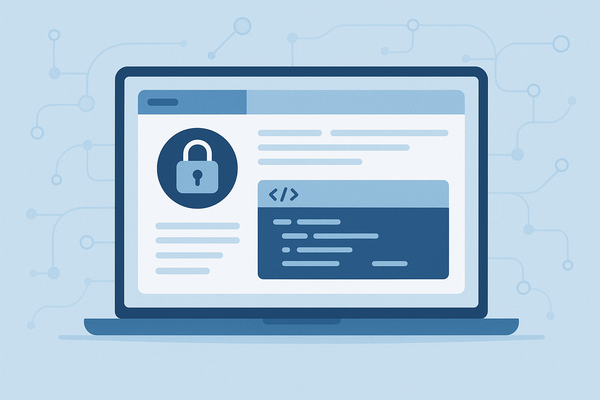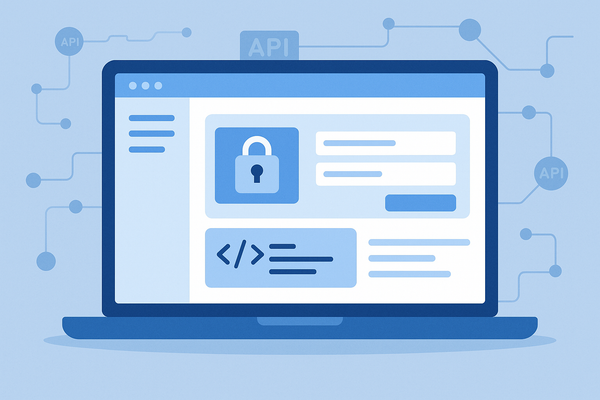How to Get MailerLite API Key: Step-by-Step Tutorial for E-commerce Integration

How to Get MailerLite API Key: Step-by-Step Tutorial for E-commerce Integration
Ever been staring at your e-commerce platform's integration screen, wondering how to connect it to your MailerLite account? You're not alone! Many online store owners feel overwhelmed when they see options for different types of credentials. Should you use a regular API key or an e-commerce API key? The good news is that getting your MailerLite API key specifically for e-commerce is actually straightforward once you know the right steps. This special type of API key is designed specifically for online stores and shopping platforms, giving you access to powerful e-commerce features like abandoned cart recovery, product recommendations, and purchase tracking. Let's walk through exactly how to generate your MailerLite e-commerce API key so you can start automating your email marketing today.
What's a MailerLite API Key? (The Simple Version)
Think of your MailerLite API key as a special password that allows your e-commerce store to have a direct conversation with your MailerLite account. Unlike your regular login credentials, this digital key works behind the scenes to automatically sync data between your online store and your email marketing campaigns.
With your MailerLite e-commerce API key, you can:
- Automatically add new customers to your email lists when they make a purchase
- Send targeted product recommendations based on browsing behavior
- Trigger abandoned cart recovery emails when customers leave items behind
- Track revenue and sales data directly in your email campaigns
- Segment customers based on purchase history and spending patterns
- Sync product catalogs for dynamic content in your emails
Ready to Generate Your API Key?
Follow this step-by-step tutorial to get your MailerLite e-commerce API key in just a few minutes:
Pro tip: Once you generate your API key, copy it immediately and store it in a secure location. You'll need it for your e-commerce integrations!
Are you a service provider looking to collect credentials from your clients? Try Creddy.me for free and collect your credentials in minutes, not days.
Why Would You Want This API Key Anyway?
The 'Aha!' Moments:
🛒 Abandoned Cart Recovery Magic
Customer adds items to cart → Leaves without purchasing → MailerLite automatically sends personalized recovery email with cart contents → Customer returns and completes purchase → You recover 15-30% of abandoned sales
🎯 Smart Customer Segmentation
Customer makes purchase → MailerLite tracks purchase data → System automatically segments customers by spending habits → You send VIP offers to high-value customers → Increase repeat purchases by 25%
📧 Post-Purchase Automation
Order completed → MailerLite triggers thank you email → Follows up with product care tips → Sends review request after delivery → Recommends complementary products → Builds customer loyalty automatically
🔥 Revenue Attribution Tracking
Email campaign sent → Customer clicks and purchases → MailerLite tracks revenue back to specific email → You see exactly which campaigns drive sales → Optimize future campaigns for maximum ROI
Real-World Integration Examples:
- Shopify: Sync customer data, product catalogs, and purchase history for targeted campaigns
- WooCommerce: Automate post-purchase sequences and track e-commerce performance
- BigCommerce: Connect abandoned cart recovery and customer segmentation workflows
- Magento: Integrate product recommendations and purchase-based email triggers
- Custom E-commerce Platforms: Build direct API connections for tailored automation
Keep Your API Key Safe (It's Easier Than You Think)
Your MailerLite API key is valuable, but protecting it doesn't require a cybersecurity degree. Here are the four golden rules:
- Store it securely: Save your API key in a password manager or secure document, never in plain text files
- Don't share publicly: Never post your API key in forums, code repositories, or public documentation
- Use environment variables: If you're working with developers, ask them to store the key in environment variables
- Monitor usage: Check your MailerLite account regularly for any unusual activity or unauthorized access
Quick test: After setting up your integration, send yourself a test email to make sure everything's working correctly before going live.
The Professional Way to Collect Client Credentials
"Hey, I need your MailerLite API key to set up your e-commerce integration."
"Um, how do I get that? Can you just do it for me?"
"Well, I'd need access to your account..."
Sound familiar? This awkward dance happens countless times between service providers and their clients. What if there was a better way?
Imagine sending your client a simple, secure link where they can generate their MailerLite API key themselves and share it with you safely. No more screen sharing sessions, no more "I forgot my password" delays, and no more security concerns about account access.
That's exactly what Creddy.me does. Instead of asking clients to fumble through credential generation, you send them a professional request. They follow the guided process (just like the tutorial above), and you receive the credentials securely. Your clients feel confident they're maintaining control of their accounts, and you get what you need to deliver great service.
The result? Projects start faster, clients are happier, and you look more professional. Try Creddy.me and see the difference it makes in your client relationships.
What's Next?
Congratulations! You now have your MailerLite e-commerce API key and know how to use it safely. This opens up a world of possibilities for automating your email marketing and connecting your online store to powerful campaign tools. Whether you're integrating with Shopify, WooCommerce, or any other e-commerce platform, your API key is the bridge that makes it all possible. Remember, Creddy.me supports over 200 platforms, so when you're ready to streamline more integrations, we've got you covered.




